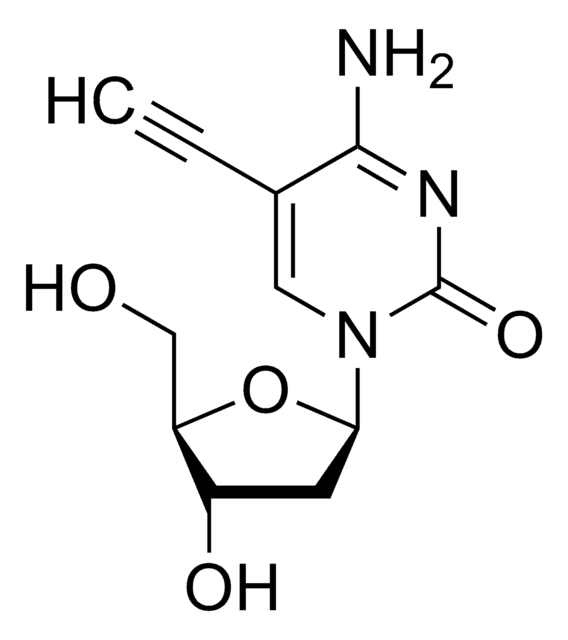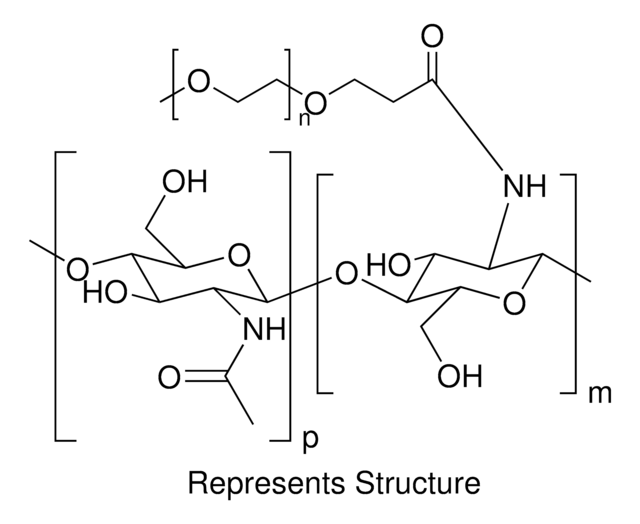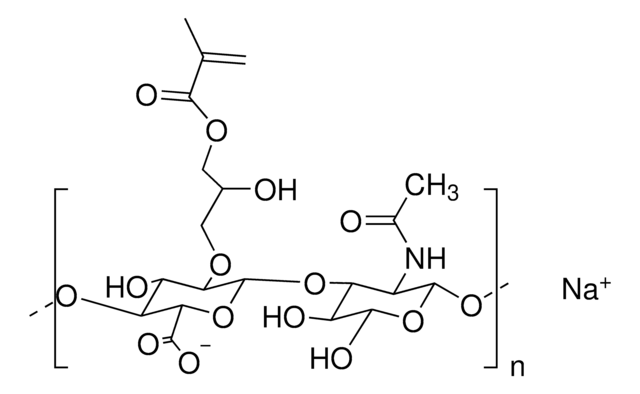915211
Lifeink® 240
acidic type I collagen bioink, 35 mg/mL
Synonym(s):
3D Bioprinting, Bioink, Collagen
Sign Into View Organizational & Contract Pricing
All Photos(1)
About This Item
Recommended Products
Quality Level
sterility
sterile; sterile-filtered
form
viscous liquid
concentration
30-40 mg/mL (Collagen concentration)
35 mg/mL
impurities
≤10 EU/mL Endotoxin
color
colorless
pH
3.0-5.0
storage temp.
2-8°C
Application
Lifeink® 240 is a collagen based bioink that is suitable for 3D bioprinting using the FRESH printing technique. The recommended printing temperature is at 2-25 °C. It is a an acidic Type I collagen bioink at a concentration of 35 mg/ml. Lifeink® 240 is formulated in an acidic saline buffer solution. Once the collagen is printed into LifeSupport™, the pH and salts concentration of the printed structure become physiological. Cells can then be seeded onto the printed structure allowing for cell adherence and cellular remodeling of the 3D bioprinted structure. This bioink possesses high print fidelity, shear-thinning, strong mechanical strength, and good cytocompatibility.
Legal Information
LifeSupport is a trademark of Advanced BioMatrix, Inc.
Lifeink is a registered trademark of Advanced BioMatrix, Inc.
Signal Word
Warning
Hazard Statements
Precautionary Statements
Hazard Classifications
Met. Corr. 1
Storage Class Code
8A - Combustible, corrosive hazardous materials
WGK
WGK 1
Certificates of Analysis (COA)
Search for Certificates of Analysis (COA) by entering the products Lot/Batch Number. Lot and Batch Numbers can be found on a product’s label following the words ‘Lot’ or ‘Batch’.
Already Own This Product?
Find documentation for the products that you have recently purchased in the Document Library.
In vivo remodeling of a 3D-Bioprinted tissue engineered heart valve scaffold.
Maxson E L, et al.
Bioprinting, 16, e00059-e00059 (2019)
A Lee et al.
Science (New York, N.Y.), 365(6452), 482-487 (2019-08-03)
Collagen is the primary component of the extracellular matrix in the human body. It has proved challenging to fabricate collagen scaffolds capable of replicating the structure and function of tissues and organs. We present a method to 3D-bioprint collagen using
Our team of scientists has experience in all areas of research including Life Science, Material Science, Chemical Synthesis, Chromatography, Analytical and many others.
Contact Technical Service






